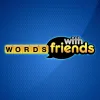Take a look inside 4 images
Words With Friends
Pros: No time limits means players have time to form the best words as they play against their friends.
Cons: Liberal dictionary allows questionable words; iffy chat feature distracts from the game and raises privacy concerns.
Bottom Line: Similar to the popular board game, it makes spelling words a little more social and a little more cool.
Teachers can use Words With Friends to get students thinking about vocabulary and spelling. They may incorporate it during some free time to boost kids' confidence in their spelling abilities or allow kids to play it if they finish their work early to keep them focused on academics while rewarding them for a job well done. Teachers may also opt to use the game as a sort of competition, pitting themselves against the entire class and playing a round a day or having groups of students (or even multiple classes) compete against each other to see who can get the highest score in a week.
Editor's note: As of July 2016 there is a new, education-specific version of this game. Click here for our review of Words With Friends EDU.
Words With Friends is an online game that echos the look and feel of a popular board game. Players make words by placing tiles on the board. They earn points for each letter played and additional points for playing letters on bonus squares. Since the game does not have time limits, players have plenty of time to make their words. Players also don't have to play an entire game in one sitting; instead, one player can make a move and walk away from a game, coming back a few hours or even a few days later to see if the other player has made a move. Whether they opt to play the entire game at once or over a period of days, players can interact with their opponents through the game's chat feature. Traditionally, players will start matches with friends who have also connected to the game, but a smart match feature also pairs users anonymously with other players from around the world.
Invite kids to play a board game, and most will decline. Invite them to match up in Words With Friends, and they're likely to give a different answer. This app brings a cool factor to spelling and vocabulary, which means it has some potential for helping students learn. However, the randomness of the letter tiles and the very forgiving dictionary keep it from being truly educational. Kids will build their puzzle-solving skills and knowledge of common spelling patterns as they unscramble letter tiles to place words on the board. However, since the game allows players to attempt to submit words without penalty, they can also string together random combinations of letters and hope they make a word. This feature leaves far too much to chance; rather than reinforcing knowledge or building new skills, kids might just submit words until something sticks.
Also, be wary of the ability to play against people you don't know; this feature could open kids up to playing -- and chatting -- with strangers, making this an iffy choice for kids without close supervision and rules for use.












